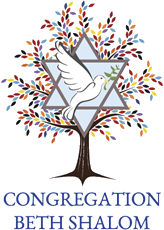Recently our family suffered two deaths. Neither passing was tragic. Both individuals were in their nineties and had been in good health almost to the end. However, the one statement I heard more than any other was that deaths tend to come in threes, and this was usually followed by a macabre discussion about who just might be number three.
This myth about people dying in threes is probably nothing more than a “baba meisa” (grandmother’s tale) and, most likely, an attempt to prevent a “kenna hora” (Hebrew k’ayin hara – the evil eye). Nonetheless, threes have long stood in our Jewish tradition with an entirely different role and purpose.
When a boy is circumcised or a girl is named, the child, when given its Hebrew name, is wished a life devoted to and filled with good things, including “Torah, Chuppah, and Ma’asim Tovim”. The first, Torah, is a life dedicated to learning and to the traditions of our people. The third, Ma’asim Tovim, is the living of a life dedicated to doing what is right, to turning the world that is into the world that could be, if we make it so. Torah on the one side, good deeds on the other. And right in the middle is marriage. What powerful company for marriage to be among! What a clear indication of just how important marriage and family are.
Another example of threes is found in the Torah Portion Emor, which we just read. First comes a detailed list of the rules concerning the Kohanim, the Priestly Class. The third section is a list of the Holy Days, how to celebrate them, and when on the calendar they fall. Nestled right between these two ritualistic sections is a series of laws commanding that we take care of the poor, treat each other fairly in both business and personal life, and see to the wellbeing of the widow, orphan and stranger. Rituals and Holy Days are important, but even more important is how we treat each other.
Judaism, then, uses threes as an opportunity to show us what is important. So, while superstitions about scary threes may exist in “baba meisas”, the Torah teaches us important lessons through threes about how we should all live our lives in the positive light of goodness.
B’Shalom
Rabbi Stanley Halpern
